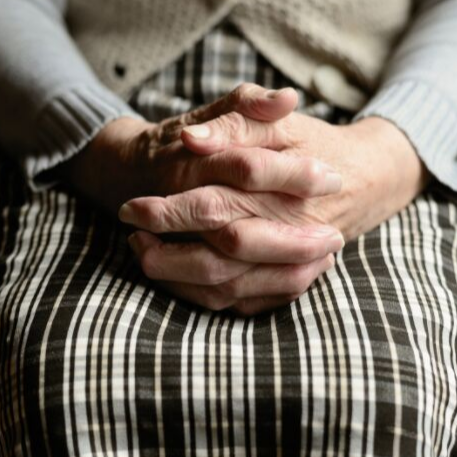
Elderly prison inmates: amicus curiae brief sent to ECtHR
- The HFHR has submitted an amicus curiae brief to the European Court of Human Rights, addressing the case started by the application of an 80-year-old woman who was held in pre-trial detention for almost two years.
- The applicant complained that her detention, which had been carried out in a facility not adapted to the needs of the elderly, had led to a violation of Article 3 of the Convention, namely the prohibition of torture and inhuman or degrading treatment. She also argued that the period of her detention was excessive, which amounted to a violation of Article 5 § 3 ECHR.
- In its amicus curiae brief, the HFHR pointed to the special characteristics of elderly detainees as a group. The Foundation also presented statistics on the prison population. The brief also made reference to domestic and international recommendations.
The global problem of penitentiary facilities failing to accommodate the needs of the elderly.
Societies are ageing, both in Europe and globally. The changes taking place are also reflected in the makeup of the prison population. According to official statistics, in 2018 there were 2934 inmates aged over 61 in Polish penitentiary institutions of all types, which means an increase by 1431 as compared to 2008. Moreover, in 2018, 4.1% of the persons serving a prison sentence were aged above 61, which is 2.34 percentage points more than in 2008.
It should be noted that older people deprived of their liberty may have special health needs related to, for example, their reduced mobility, dementia or mental health. Senior inmates often require extra specialist care and more frequent health checks. Many of the limitations faced by older prisoners result from the fact that the penitentiary facilities are not adapted to the needs of the elderly. The Foundation receives complaints highlighting inadequate medical care and living conditions.
The imprisonment and pre-trial detention of old-age persons must be considered from a number of perspectives: the need to adapt the living conditions in penitentiary institutions to the needs of the elderly, the availability of an appropriate level of medical care, adequate penitentiary interventions, as well as the need to define contraindications for imposing sentences or preventive measures on elderly defendants.
HFHR’s amicus curiae brief
– The Foundation has decided to present an amicus curiae opinion recognising that the case may be of considerable importance to Poland and other countries as it may lead to the development of standards of detention and imprisonment of old-age persons.
– In the submitted brief, the HFHR drew attention to the demographic data concerning Poland and the statistics showing the structure of the prison population over the last decade. The HFHR noted the long-standing growth of the elderly prison population, in both the 60+ and 80+ age groups. The Foundation also emphasised that despite a decrease in the number of imprisoned and detained persons, the number of prisoners aged 60+ remained on the rise.
– The Foundation’s brief focused on confronting the Polish legal regulations on detention conditions with international recommendations on specific conditions that the state should guarantee for senior citizens held in penitentiary facilities.
– The HFHR opinion presents examples of penitentiary policies for older persons introduced elsewhere in Europe. In the German prison system, there are special wards for inmates in need of geriatric treatment. The Greek legal framework offers the possibility of various facilities for elderly persons such as an alternative system of serving sentences and the calculation of the detention period. In Serbia, special rules have been put in place for the detention of older persons, which must be implemented with due consideration for their state of health, location of the detention facility, diet, activities and social protection upon leaving the prison. In Poland, however, there are no detailed regulations or guidelines defining the conditions of detention of persons over 67 years of age in prisons and remand centres.
– The HFHR also pointed out that in the light of international norms and standards (in particular, those developed in the form of soft law), older persons belong to the category of prisoners with special needs. This means that state authorities should take additional protective measures to prevent ill-treatment of old-age inmates of penitentiary facilities.
The use of pre-trial detention, as well as issues related to the broadly defined detention and its conditions, have been of interest to the Foundation since its establishment. Over the years, the HFHR has taken a number of measures to monitor the rights of persons deprived of their liberty, as well as to observe parliamentary work that could affect the rights of persons detained in the course of and as a result of criminal proceedings.
Download
Related links
- Report 2018 “Rights of persons deprived of liberty – fundamental legal and practical issues”
- Report 2017 on the human rights of persons deprived of liberty


13.08.2019
 Cookies EN
Cookies EN